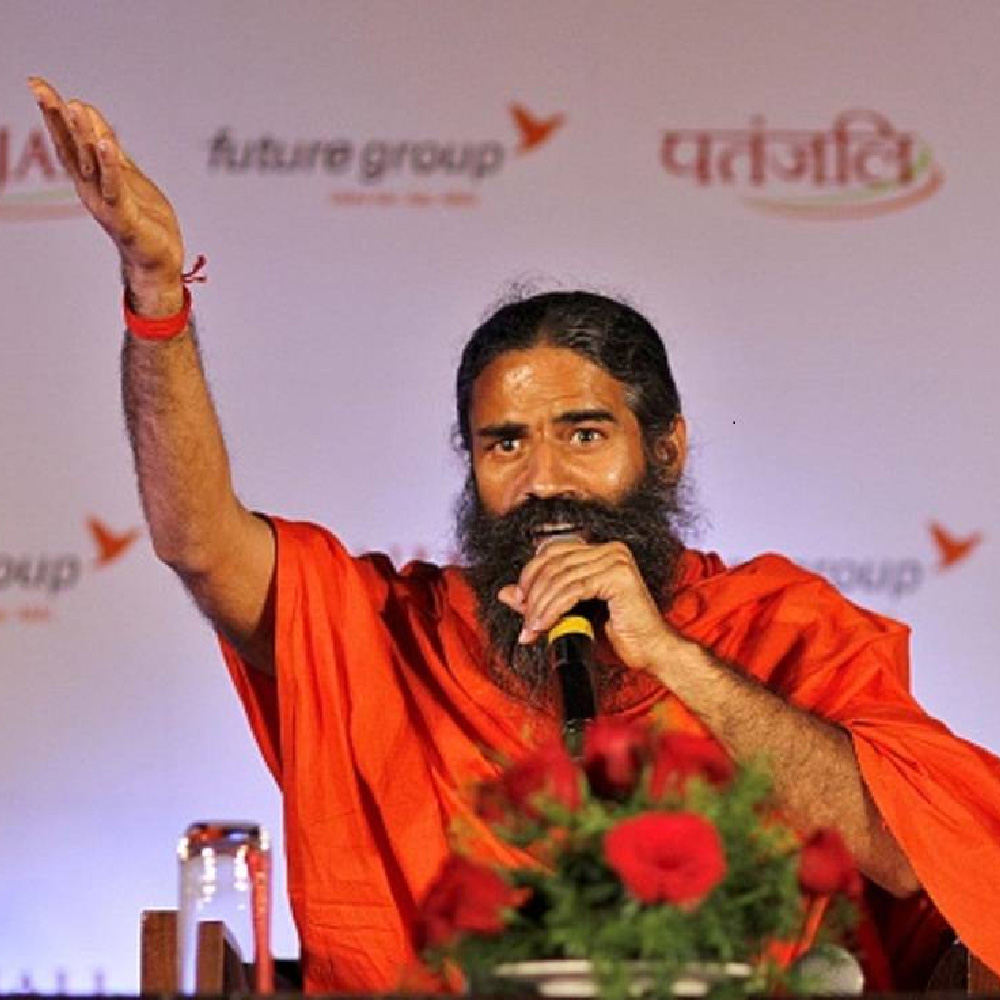Patanjali Group’s founder Baba Ramdev announced that the company will launch at least four IPOs during the next 5 years.

Patanjali Group’s founder Baba Ramdev announced Friday that the company would launch at least four IPOs during the next five years.
“Within the next five years, Patanjali Ayurved, Patanjali Medicine, Patanjali Wellness, and Patanjali Lifestyle will launch at least four initial public offerings,” Baba Ramdev said.
In addition, he wants to increase the group’s market value from Rs 50,000 crore to Rs 5 lakh crore over the next five years. According to Ramdev, the group’s present revenue is Rs 40,000 crore, and in five years, it will reach Rs 1 lakh crore.
Shares of Patanjali Foods, formerly known as Ruchi Soya NSE -3.69% and renamed as Patanjali Foods after being acquired by Baba Ramdev-led Patanjali Ayurved, were trading 0.6% higher on the news at Rs 1,351 at 1 pm. Year to date, the stock has increased by about 60%. Rarely does the company receive analyst attention; nonetheless, Antique Stock Broking just began covering with a target price of Rs 1,725.
Ramdev claimed that Patanjali Foods is well on its way to becoming a diversified FMCG and FMHG-focused company with well-known brands (Ruchi, Nutrela, and Patanjali) throughout the value chain. Ramdev further claimed that by diversifying its portfolio, the business would outperform rivals and benefit from PAL’s extensive distribution network.
Based in Haridwar, India, Patanjali Ayurved is an international conglomerate holding corporation with Indian roots. In 2006, Ramdev and Balkrishna started it. With its headquarters and production facilities in Haridwar’s industrial district, it has its office in Delhi. The business produces food, personal care, ayurvedic medication, and cosmetics. Balkrishna, who owns 94 per cent of the corporation, is the CEO. Ramdev acts as the company’s spokesperson and takes important choices.
Patanjali Ayurved was founded in 2006 by Ramdev and Balkrishna. Balkrishna controls 94 per cent of the business, with the remaining 26 per cent owned by other people. Balkrishna’s net worth was US$2.3 billion as of May 2021.
Patanjali ranked among the FMCG firms in India with the quickest rate of growth in 2016, according to CLSA and HSBC. It was worth 3,000 crores, which, in 2020, would be the equivalent of 37 billion or US$460 million. For the fiscal year 2016–17, Patanjali projected that it had annual revenue of Rs. 10,216 crores ($1.3 billion). At least 13 listed firms, including Hindustan Unilever, Colgate, Dabur, ITC, and Godrej Consumer Products, will be impacted by Patanjali’s success, according to research by India Infoline (IIFL).
Gains from Investing in IPOs
The following are some advantages of IPO investments:
- A list of gains IPOs appeals to many investors because there is a potential to profit when the shares are launched. Let’s imagine you bought shares through an IPO, and the shares are listed on the stock markets at a greater price. If so, you can sell the shares to profit from the listing.
- Affordable share prices: You may be able to purchase the firm’s shares at a discount if the price a company quotes when launching an IPO is lower than other times. If the business succeeds, you might not be able to afford the stock price.
- High transparency: Companies must reveal certain information as required by strict IPO regulations. The business is required to provide information about its operations, finances, future goals, etc.
- To achieve long-term objectives, equities investments historically had a better return than other asset types. You gain from an IPO by being able to select profitable stocks at a reasonable cost. Long-term investing allows you to build wealth and achieve your financial objectives.
- The SEBI has mandated that businesses provide a specific percentage of IPOs to retail investors, which would improve the possibilities for small investors. Small investors thus have a fair opportunity to participate in the primary markets, which is a major advantage of IPOs.
What Are IPOs Like In India?

Through an IPO, a privately held business can go public and start trading shares. When issuing their shares to the public, corporations in India are required to follow the IPO procedure.
How IPOs operate will be covered in the sentences that follow:
- A firm must first employ investment bankers to create an underwriting document in order to launch an IPO.
- To determine the offered size, allocation, and price of the IPO as well as any other parameters, these specialists will undertake a thorough investigation of the company.
- In order to file for an IPO, they will also assist in creating a DRHP (draft red herring prospectus). This is an offer document that a business must submit to the registrar of companies and the Securities and Exchange Board of India (SEBI). Additionally, a business must submit its DRHP to India’s Securities and Exchange Board (SEBI).
- A DRHP includes all pertinent information about a firm, such as its ongoing initiatives, promoters, IPO goals, issue terms, financial information, risks, opportunities, and threats. This document can be examined by investors to help them determine whether or not they want to invest in an impending IPO.
- If the IPO meets all requirements for eligibility, the capital markets regulator SEBI will review all disclosures and provide approval. The firm may then choose a date for the IPO and wait for approval from the stock exchanges (NSE or BSE) to launch the public offering.
- The following stage involves roadshows, which are presentations for significant institutional investors to advertise an IPO. The IPO opening date, price band, and date of allocation to each investor group will lastly be disclosed by this company.
Qualification Standards for Indian IPOs
Companies must adhere to a number of regulations set forth by SEBI in order to be eligible to undertake an IPO. The following are discussed:
- The business must have had net tangible assets in the past three years totalling at least Rs. 3 crore.
- Cash or cash equivalents must represent 50% of the company’s net assets.
- Its net worth over the previous three years must have been at least Rs. 1 crore.
- Its total issue size cannot exceed five times the value of this corporation.
- A firm must have generated operating earnings of at least Rs. 15 crore on average during the previous three to five years.

NSE (National Stock Exchange of India) and BSE (Bombay Stock Exchange) both have set up prerequisites for IPOs in addition to SEBI regulations. These are as follows:
- A minimum of Rs. 10 crores must be paid up in equity shares by the corporation.
- There must be a minimum capitalisation of Rs. 25 crores in the company’s equity.
- All financial reports for the past three years must be submitted to the NSE.
- An organization’s net worth cannot be negative.
- In this case, the National Company Law Appellate Tribunal (NCLAT) or National Company Law Tribunal (NCLT) should not have been consulted.
Investments that really get the heart pumping are initial public offerings (IPOs). Nearly invariably, they include danger and excitement. Uncertainty is an integral part of the whole investment equation, just like it is with most items that have very high upside potential. IPO and hype are frequently used in the same sentence, as was previously mentioned. It’s not unusual for an IPO to increase by 20% or more on the first day before falling back to its initial value in certain situations within a few days or weeks.
Edited by Prakriti Arora




